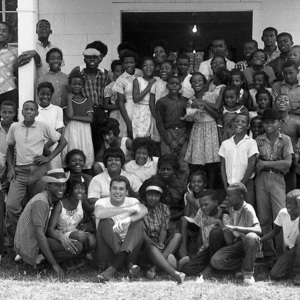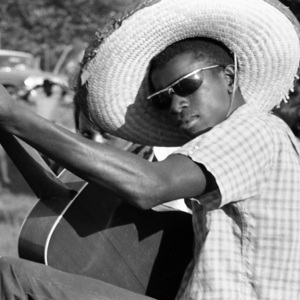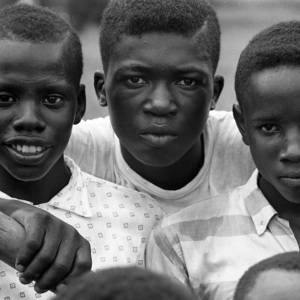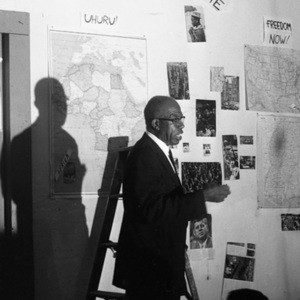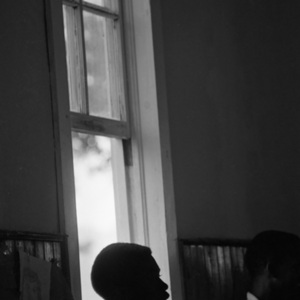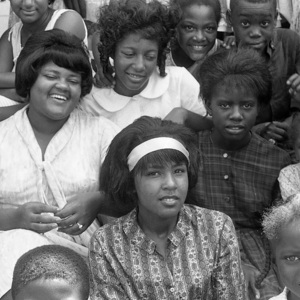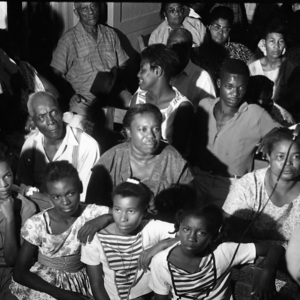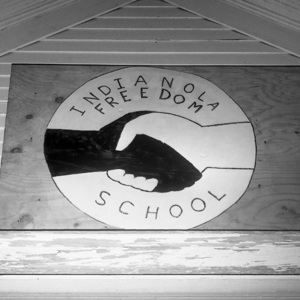Remembering Mississippi Freedom Summer
Commemorating the 50th anniversary of Freedom Summer, Remembering Mississippi Freedom Summer highlights primary source materials from the Washington University Libraries Film & Media Archive’s newly acquired Richard Beymer Collection and inaugural Henry Hampton Collection.
Best known for his roles as “Tony” in the film adaption of West Side Story (1961) and “Ben Horne” in David Lynch’s series Twin Peaks (1990-1991), actor Richard Beymer’s documentary film, A Regular Bouquet: Mississippi Summer (1964) offers a rare portrait of segregated Mississippi during this historically significant time in American History. Beymer was one of the few filmmakers to spend significant time working with Freedom Summer volunteers from the Student Nonviolent Coordinating Committee (SNCC). As a result, other documentary filmmakers frequently seek his footage. Most recently, filmmaker Stanley Nelson relied heavily on A Regular Bouquet when completing his film, Freedom Summer, which premiered in June 2014 on PBS. Beymer’s footage was also included in Henry Hampton’s seminal documentary series, Eyes on the Prize (1987). Featured in episode five, Mississippi: Is This America? (1962-1964) Hampton combined stock footage and first-hand accounts to retell the events of Freedom Summer.
In 1964, civil rights activists launched Freedom Summer, a project in Mississippi to register black voters, provide educational opportunities, and build the movement for integration. The Council of Federated Organizations (COFO), an umbrella group of civil rights organizations that included SNCC working in Mississippi, issued a call for volunteers, and nearly 1,000 responded. After receiving training, the volunteers, mostly white, northern college students and recent graduates, joined the existing group of predominantly black activists.
Richard Beymer set out to film these activities in order to create a training tool for COFO’s future volunteers. Comprised of testimonials from volunteers and Black Mississippi residents, A Regular Bouquet: Mississippi Summer consists of rare and historically significant primary source depictions of segregated Mississippi against the backdrop of violent opposition. The film also includes footage of Freedom Schools, which provided instruction to over 3,000 black students. The schools directly challenged Mississippi’s segregated education system by offering instruction on black history and constitutional rights. Portraying the intimate relationship between teacher and student, the film includes interviews, class instruction, sing-alongs, and a discussion of the student-written Pleasant Green Magazine.
The threat of racist violence haunted Freedom Summer from the beginning. On June 21, one week after the first volunteers arrived for training, three activists, James Chaney, Andrew Goodman, and Michael Schwerner, disappeared. The FBI conducted a massive search and found their corpses on August 4. Despite the threat of violence, Freedom Summer volunteers engaged in door-to-door voter-registration efforts. Beymer filmed the registration drive and interviewed participants. One resident discussed the economic tactics used by segregationists: “When you put ‘By whom are you employed’ [on the application form], you’re fired by the time you get back home.” Mississippi officials rejected the vast majority of voter-registration applications submitted by African-American residents that summer. But the events of Freedom Summer increased public support for new civil rights legislation, leading to the passage of the Voting Rights Act of 1965.
When Henry Hampton made Eyes on the Prize one of his main goals was to include the voices of people who had not been recorded or widely recognized before. Many local activists in remote areas of Mississippi who had organized early on to gain voting rights, often at great risk, were featured in the episode Mississippi: Is This America? (1962-1964). Hampton interviewed Robert Moses and Amize Moore, two of the main architects and planners of Freedom Summer, Unita Blackwell, local activist who became one of the delegates in the Mississippi Freedom Democratic Party (MFDP), Casey and Tom Hayen, Freedom Summer volunteers, and Myrlie Evers, civil rights activist and widow of slain Mississippi leader Medgar Evers. Hampton also interviewed segregationists, including William Simmons, a member of the Citizens’ Council—a pro-segregation organization that operated in Mississippi—to show what the prevailing political climate was like in Mississippi in 1964 and what the Freedom Summer volunteers had to combat. By interviewing people from both sides of the issue, Hampton brought a multifaceted portrait of Mississippi to viewers.
Together A Regular Bouquet: Mississippi Summer and Mississippi: Is This America? (1962-1964) create a complex portrait of life in Mississippi during Freedom Summer and an understanding of the social and political pressures that existed during this volatile period in our nation’s history.
